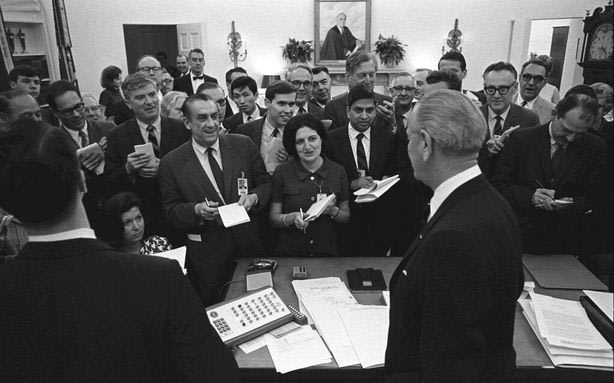 When Miss. Saigon opened on Broadway in 1991, the production played to 1,700 theatergoers nightly, featured a cast of 40 and a physical production which incorporated a helicopter landing on-stage. So what would happen if Miss. Saigon was suddenly scaled down to a small regional theater? Would this epic stage show survive?
When Miss. Saigon opened on Broadway in 1991, the production played to 1,700 theatergoers nightly, featured a cast of 40 and a physical production which incorporated a helicopter landing on-stage. So what would happen if Miss. Saigon was suddenly scaled down to a small regional theater? Would this epic stage show survive?
That was the question facing Signature Theater when they announced Miss. Saigon as the opener for their 24th season. The result was astounding. Not only did Miss. Saigon survive, but 24 years after its world-première in London, I’m thrilled to report that the show has held up unbelievably well in this thrilling new production!
For starters, I can’t stress enough the reduction in the size and scope of this production. Most musicals are scaled down when they go from Broadway to regional theater, but this reduction was drastic. Signature’s Max Theater only seats 275 patrons and this revival features a cast of 18, roughly half the size of the original London and New York casts.
One problem with the original Broadway production was that the staging took away from Miss. Saigon’s book, music and lyrics, the heart of any musical. Whereas with The Phantom of the Opera, audiences could remember both the special effects and the score, with Miss. Saigon it was a different story. Audiences could remember the helicopter, but none of the songs. There was no balance between these two storytelling techniques.
In Signature’s production, director Eric Schaeffer has done a remarkable job refocusing the story away from special effects and more towards the love-story at the heart of the show between an American GI and a Vietnamese bar girl during the fall of Saigon in 1975. Furthermore, Schaeffer’s staging allows the songs to better tell the story. And luckily for this audience, the score is beautifully performed by a 15 piece orchestra (much larger than many current orchestras on Broadway).
Adding to the chaos and confusion of Miss. Saigon’s war setting is the environmental set design which is at the heart of this production. The theater is littered with military paraphernalia including an authentic Vietnam-era airplane wing and cockpit. All of this leads to the question: Is there a helicopter? Yes, the helicopter does make an appearance. And while I won’t spoil the moment, I will reveal that it is only used to enhance the scene, not steal it.
A great deal of praise and credit for this production’s success must also be given to the performances of Thom Sesma (the Engineer), Diana Huey (Kim), Jason Michael Evans (Chris) and Erin Driscol (Ellen). With a well established show like Miss. Saigon, it’s easy to create performances that are carbon copies of the original Broadway cast. But this cast has indeed created a Miss. Saigon that is their own and the on-stage chemistry is only adding to the excitement of this production.

There is one final aspect of this production which can’t be ignored and that is a new Act II song entitled “Maybe” making its world-début in this production. In preparation for next year’s 25th anniversary London revival of Miss. Saigon, the creative team of Claude-Michel Schonberg, Alain Boublil and Richard Maltby Jr. decided to rewrite a scene in Act II causing them to remove one song, and substitute it with “Maybe.” In an effort to not be a spoiler, I won’t disclose much about the song except to say that it’s terrific. And for audiences, there’s nothing more exciting then to hear a new song before the rest of the theatrical community.
The fall 2013 DC theater season is just beginning, but as of right now, it’s hard to imagine anything more exciting this year than Signature Theatre’s production of Miss. Saigon. “Why, God, Why?” is not just a ballad in the first act, it’s the question you’ll be asking if you miss this production!
Miss. Saigon is playing thru September 22. Tickets maybe purchased here.







 playing at
playing at  iew of the justice system,
iew of the justice system,  opening in November 1996. In 2002
opening in November 1996. In 2002 




 The 20th of May reference comes from My Fair Lady’s Act I fantasy number “Just You Wait (Henry Higgins).” While not an official holiday, Eliza Doolittle Day is the nearest event I’ll ever have to celebrating the brilliance of My Fair Lady because it conceptualizes the definition of a masterpiece.
The 20th of May reference comes from My Fair Lady’s Act I fantasy number “Just You Wait (Henry Higgins).” While not an official holiday, Eliza Doolittle Day is the nearest event I’ll ever have to celebrating the brilliance of My Fair Lady because it conceptualizes the definition of a masterpiece.
 The theatre was pitch black, the curtain a dingy tent flap and from the orchestra a faint piano could be heard as a slinky black shadow slithered toward the audience beckoning, “Join us…”
The theatre was pitch black, the curtain a dingy tent flap and from the orchestra a faint piano could be heard as a slinky black shadow slithered toward the audience beckoning, “Join us…” Countless musicals have told love stories on linear paths regardless of their ending. But what about telling the story from two different angles and time perspectives? That’s what makes
Countless musicals have told love stories on linear paths regardless of their ending. But what about telling the story from two different angles and time perspectives? That’s what makes 
 nd commissioned a new book (the spoken text of a musical) to be written.
nd commissioned a new book (the spoken text of a musical) to be written.

